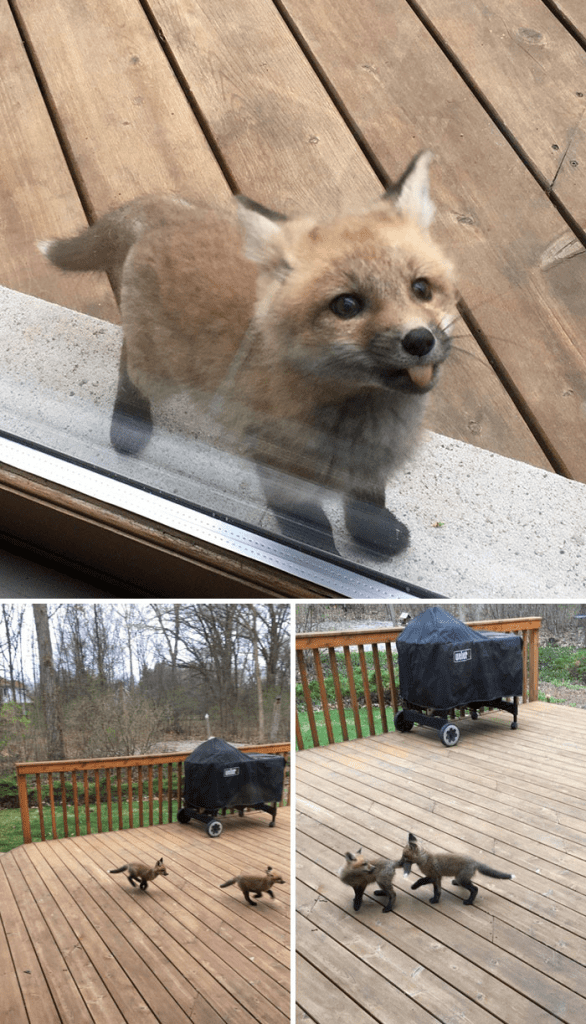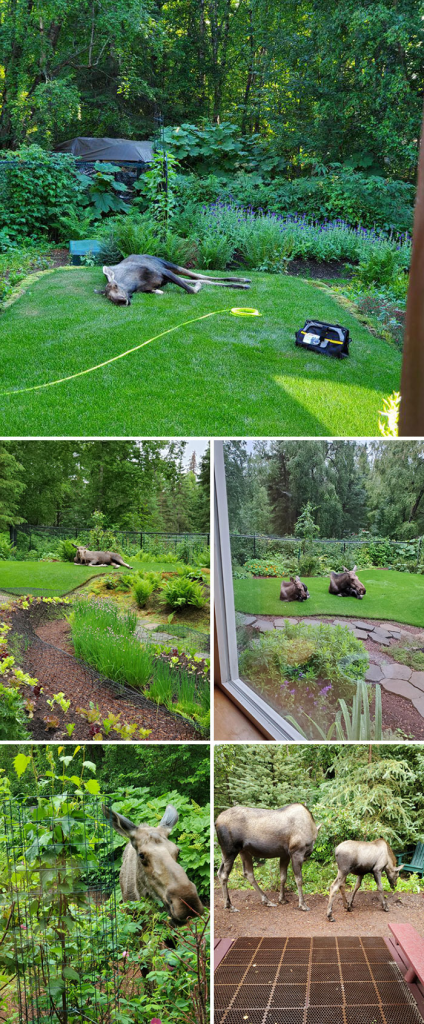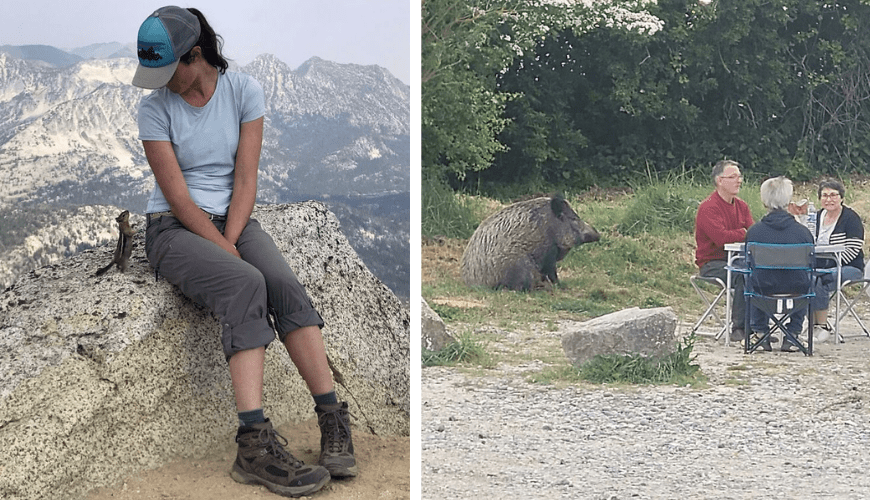People are fascinated by animals, which is evident from the popularity of owning pets, viewing nature shows and visiting zoos in urban areas. Interestingly, animals can also exhibit a similar interest in us or crave the food we have.
As you go through your day, be on the lookout for local wildlife. However, it’s crucial to take safety measures when encountering these animals. To ensure your safety, we have compiled some helpful tips.
Hot Flav has compiled a list of strange animal-human interactions that may have bewildered both parties. Sharing your encounters with wildlife and having fun reading through the list.
#1 Baby Foxes

#2

#3

#4

#5 Possum

#6 Fox is Sleeping On Skylight

Wildlife often relies on suburban areas as a food source, with easy meals in the form of garbage, pet food, and bird feeders. This attracts a variety of animals, including raccoons, skunks, and squirrels. Sadly, many animals are forced to move into suburban areas due to the destruction and fragmentation of their natural habitats caused by human development and population growth.
Urbanization and suburban sprawl affect animal migration patterns and limit access to their natural habitats. Animals may be forced to seek new habitats, often in suburban areas. Be aware that wildlife encounters in the suburbs can harm people and animals.
#7 Wild Goose

#8

#9 Wild Kangaroo

#10

#11 Chipmunk

#12 Wild Boar

For better safety, people must remember that encountering wildlife like bears, moose, or elk can be risky and uncertain. Therefore, it is essential to take preventive measures.
It is advisable to stay away from these massive animals and not get too close to them. They might feel defensive and endangered if approached closely. Keeping a safe distance, speaking in a gentle tone, and avoiding sudden movements can prevent aggressive behaviour.
In case of a concern, it is best to check with the nearby wildlife authority to determine the safest time for hiking or camping.
#13

#14

#15 Cute Wild Bobcat

#16

#17 A Rare And Endangered Peregrine Falcon—the Fastest Bird On The Continent (The Wildlife Commission Reunited Him With His Family)

#18

Even small creatures can pose a danger in certain situations. If you come across a venomous snake, it’s best to stay calm and avoid sudden movements. Keep a safe distance and avoid touching or approaching the snake, as they are more likely to attack if they feel threatened.
When hiking or camping, it’s crucial to securely store food to avoid attracting wildlife like bears, raccoons, and other animals. Keep your campsite clean, use airtight containers for food storage, and hang it at least 10 feet off the ground from a tree to keep it away from animals.
#19 A Gift From Crow

#20 A Wild Cardinal

#21 Norwegian Elk

#22 Curious Stoat

#23 Moose

#24

#25 Racoon

If you see a wild animal like a fox, coyote, or mountain lion nearby, standing tall, waving your arms, and making loud noises to frighten it off is crucial. Running away from a wild animal can trigger its predatory instincts and be risky.
When it comes to marine wildlife, like dolphins, whales, or seals, it’s essential to watch from a safe distance and not disrupt their natural behaviour. Do not get too close to them, as this can disturb their surroundings and endanger you and the animal.
#26 A Nice Wren Couple Moved Into A Hiking Boot In My Parents’ Garage, And Today Their Family Grew By 5

#27

#28

#29 Wild Boar

#30

Suburban areas can offer a haven from predators for both big and small animals. Even deer can seek refuge in residential areas to avoid being hunted and to find food, such as leftovers from human meals. On the other hand, Rabbits can use gardens as a hiding spot and food source. If you live in a suburban area, you might share your space with some furry friends.
Source Credit Bored Panda







